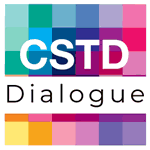Written byRoshni Abedin and Dorothy Ngila, Co-chairs of the Global Research Council, Gender Working Group
There are few women participating in science, technology, innovation, collectively, as established researchers and as decision-makers. Often, the conduct of STI does not take into account the needs, abilities, capacities and aspirations of both women and men equally. And the business of policymaking for STI does not always adequately facilitate gender equality and equity in policy choices and their implementation, be it at universities, research institutes, academies of science, government or funding agencies.
Many reports produced on the subject of equality and status of women in research are likely to dedicate findings and recommendations geared towards research funding agencies, in their different forms whether nationally, regionally or internationally. Funders of research have a fundamental role to play in influencing and advocating for the development and adoption of policy actions and choices that address gender inequality in research and innovation. This, given the catalytic role they have in shaping and consolidating national systems of innovation, and, collectively, the global science system.
A number of funding agencies, the members of the Global Research Council (GRC), and which constitute national public funding agencies, are increasingly aware of the gender imbalances in their research and innovation landscapes, and acknowledge they have a role to play in redress. For example, many now have gender policy statements and policies in place, and collect, analyse and report (comprehensively or ad-hoc) gender disaggregated data on gender balance in applications to funding schemes and success rates.
In 2016, the GRC endorsed a statement of principles and 10 actions promoting the equality and status of women in research with two overarching considerations: the participation and promotion of women in the research workforce; and the integration of the gender dimension in research design and in the analysis of research outcomes. They committed themselves to implement the following actions as most suitable and beneficial for their organisations and national research systems:
Engage in national discussions of policy frameworks regarding equality, diversity and the status of women to ensure recognition of these issues.
Collect and make available data (against consistent parameters) for comparative analysis, potentially under the auspices of the GRC.
Incorporate the evaluation of progress towards gender-based goals.
Shift the focus from the researcher “track record” to “research opportunity”.
Provide training on equality and diversity policies, including the recognition of unconscious bias and how it can be addressed.
Explore pathways for women to succeed in research and to rise in leadership in policy and decision making bodies.
Consider dedicated or strategic programmes, where appropriate, with the specific purpose of encouraging gender equality.
Promote family friendly policies and practices in relation to caregiving obligations.
Periodically review this Principles and Actions document.
Recognise the advantages of considering the gender dimension in research and encourage the development of this.
Resulting from and influenced by this, many more national public funding agencies are now actively promoting and implementing various strategies, policies, and actions to promote the status and equality of women in research. The GRC has also formed a Gender Working Group, representative of its five regions (Africa, Middle East and North Africa, Europe, Asia Pacific and Americas) that supports the domestication and implementation of the 2016 principles and actions. The Heads of Research Councils (HORCs) serve as champions of this work, and conversations on women in research are now entrenched in GRC’s annual and regional conversations, the latter which has enabled greater knowledge and practice sharing amongst the funding agencies.
The GRC will imminently launch a case study booklet showcasing some of the actions, practices, policies and actions its participating organisations are implementing in alignment with the 10 actions abovementioned.
There is no doubt that there is more to be done in support of greater equality and equity in research, and by funding agencies. Within the ambit of the GRC, this sense of urgency has certainly gained traction, and its participating organisations will continue to support, promote, and champion both conversations and actions in this regard.
What must be done to ensure that the potential offered by science, technology and innovation towards achieving the SDGs is ultimately realized?
In the context of the UN Commission on Science and Technology for Development, the CSTD Dialogue brings together leaders and experts to address this question and contribute to rigorous thinking on the opportunities and challenges of STI in several crucial areas including gender equality, food security and poverty reduction.
The conversation continues at the twenty-second session of the CSTD and as an online exchange by thought leaders.


